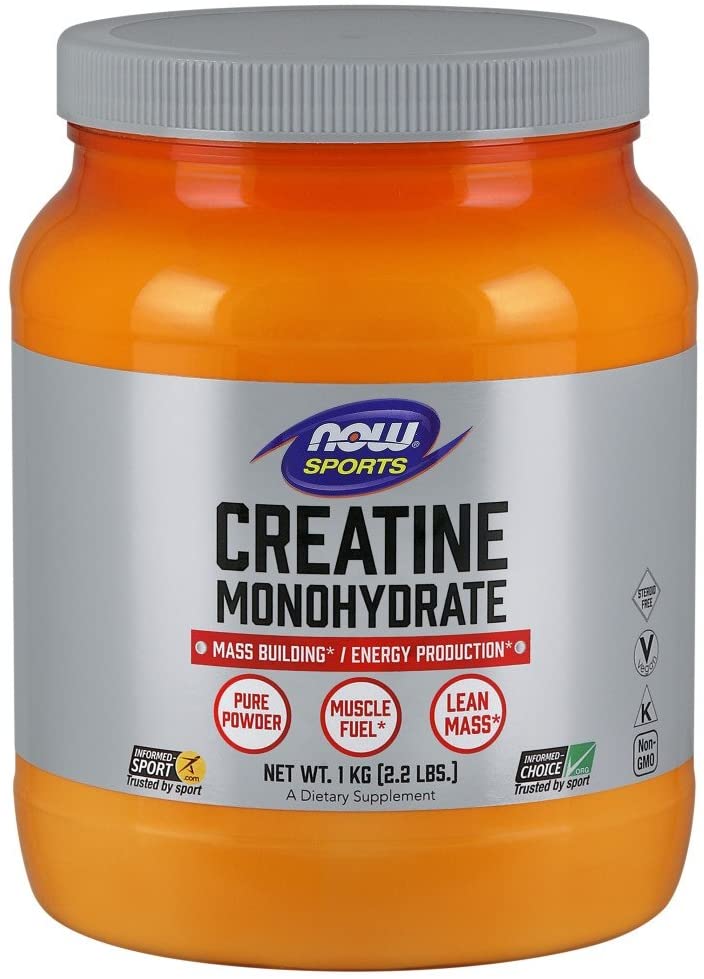Understanding Creatine: Is It Right For You?

Table of Contents
What is Creatine and How Does it Work?
Creatine is a naturally occurring organic compound, primarily found in skeletal muscle. Your body produces some creatine naturally, but supplementing can significantly boost its levels. Creatine's primary function is to help replenish adenosine triphosphate (ATP), the body's main energy currency. During high-intensity exercise, ATP is rapidly depleted. Creatine helps to regenerate ATP faster, allowing you to perform more reps, lift heavier weights, and push your limits further.
- Key Facts about Creatine's Mechanism of Action:
- Increases phosphocreatine stores in muscles.
- Improves ATP regeneration during intense exercise.
- Enhances muscle cell hydration (cell volumization).
- Facilitates muscle protein synthesis.
While creatine monohydrate is the most researched and widely used form of creatine, other types exist, including creatine ethyl ester and creatine hydrochloride. However, the effectiveness of these alternative forms compared to creatine monohydrate lacks substantial scientific evidence, making creatine monohydrate the preferred choice for most.
Benefits of Creatine Supplementation
The benefits of creatine supplementation are well-documented in numerous scientific studies. Let's explore some of the key advantages:
Increased Muscle Strength and Power
Creatine significantly enhances performance in high-intensity activities like weightlifting and sprinting. By improving ATP regeneration, it allows for more powerful muscle contractions and increased repetitions.
- Specific Examples of Performance Improvements:
- Increased repetitions in strength training exercises.
- Ability to lift heavier weights.
- Improved sprint performance and speed.
- Enhanced power output during plyometric exercises.
Numerous studies show a significant increase in strength and power output among individuals using creatine supplements compared to those using placebos.
Muscle Growth and Hypertrophy
Creatine plays a crucial role in muscle growth (hypertrophy) through multiple mechanisms. It enhances muscle protein synthesis, the process of building new muscle tissue, and also contributes to increased cell volumization, leading to greater muscle size.
- Research Findings on Creatine and Muscle Growth:
- Studies show a significant increase in lean muscle mass with creatine supplementation.
- Creatine's effect on cell volumization contributes to a fuller, more defined physique.
- The combination of increased strength and muscle protein synthesis contributes to overall hypertrophy.
Improved Cognitive Function
While primarily known for its benefits on muscle growth and strength, emerging research suggests that creatine may also enhance cognitive function. Studies have shown potential benefits for brain health, memory, and focus, particularly in individuals with certain cognitive impairments.
- Potential Cognitive Enhancements:
- Improved verbal reasoning and memory.
- Enhanced focus and concentration.
- Potential benefits for individuals with neurological conditions.
Potential Side Effects and Risks of Creatine
While generally considered safe for most healthy individuals, creatine supplementation can come with some potential side effects.
Common Side Effects
The most common side effects of creatine are generally mild and temporary.
- Common Side Effects and Their Likelihood:
- Water retention: Leads to slight weight gain (mostly water weight).
- Stomach upset: Usually manageable by adjusting dosage or timing.
- Muscle cramps: Often related to dehydration.
Rare or Serious Side Effects
Serious side effects from creatine are extremely rare. However, it's essential to be aware that some individuals may experience:
- Rare Side Effects and Importance of Medical Advice:
- Kidney problems (more likely in individuals with pre-existing kidney issues).
- Liver issues (rare and usually associated with high doses).
Who Should Avoid Creatine?
Certain individuals should avoid creatine supplementation, including:
- People with kidney problems.
- Pregnant or breastfeeding women.
- Individuals with liver conditions.
- People with certain medical conditions (consult your doctor).
Creatine Dosage and Usage
The typical recommended dosage for creatine monohydrate is 3-5 grams per day. Many individuals use a loading phase of 20 grams per day for the first week, followed by a maintenance phase of 3-5 grams per day. The optimal timing for creatine intake is a subject of debate; some prefer taking it before workouts, while others prefer after.
- Clear Instructions on Using Creatine Safely and Effectively:
- Choose a reputable brand of creatine monohydrate.
- Consume adequate amounts of water throughout the day.
- Consult a doctor or registered dietitian before starting any new supplement.
Conclusion
Creatine supplementation offers several potential benefits for individuals looking to improve muscle strength, power, and growth. However, it's crucial to understand the potential side effects and risks associated with its use. While generally safe for healthy individuals, certain individuals should avoid creatine. The information provided here is for educational purposes only and does not constitute medical advice.
Are you considering incorporating creatine into your fitness routine? Learn more about creatine supplements and make an informed decision about whether creatine is right for you. Consult with a healthcare professional to discuss if creatine is suitable for your individual needs.

Featured Posts
-
 Maple Leafs Vs Predators Odds Prediction And Best Bets For March 22
May 16, 2025
Maple Leafs Vs Predators Odds Prediction And Best Bets For March 22
May 16, 2025 -
 Analyzing The Mavericks Losses Doncic Trade And Brunsons Departure
May 16, 2025
Analyzing The Mavericks Losses Doncic Trade And Brunsons Departure
May 16, 2025 -
 Taiwanese Regulator Targets Firms For Alleged Etf Sales Staff Pressure
May 16, 2025
Taiwanese Regulator Targets Firms For Alleged Etf Sales Staff Pressure
May 16, 2025 -
 Telford Steam Railway Announces Reopening Of Refurbished Station Platform
May 16, 2025
Telford Steam Railway Announces Reopening Of Refurbished Station Platform
May 16, 2025 -
 Petition To Replace Lady Liberty With Jalen Brunson Gains Traction
May 16, 2025
Petition To Replace Lady Liberty With Jalen Brunson Gains Traction
May 16, 2025
